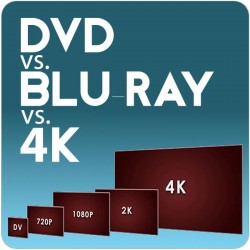Weekly News Roundup (10 November 2013)
Another short one for you this week. This one is kind of my fault though. As you know, I’m the arbiter of what gets written up here, and that’s mostly based on personal interest (I believe this is what they refer to as journalism), and I just wasn’t really in a mood to be interested in much of anything this whole week. I think watching The Perks of Being a Wallflower and Never Let Me Go back to back may have been a real detriment to my mood for the whole week, especially given the order I watched them in.
Okay, enough word padding, here we go.
![]()
What is that idiom again? Something about people who live in glass houses. Or to be precise, people who are part of a global online copyright crusade and how they should really make sure their own copyright house is in order before pointing fingers at everyone else. The fact that the websites of the RIAA and the BPI, the music industry’s two main copyright lobbyists, both appeared to have been guilty of a case of copyright abuse isn’t really the point, as the fault was minor at best (and it’s common enough). No, the point is that if you’re going to be so rigid and strict in your interpretation of copyright law, like the RIAA and BPI have done so many times in the past, then you better make sure you’re not living in that glass house.
I think copyright is a fluid thing. It exist for some pretty good reasons, but it definitely should not be interpreted in a fundamentalist manner. There are lots of examples of copyright abuse that is perfectly reasonable, and if anything, should be encouraged by the copyright holder, or at the very least, a blind eyed turned to it. For example, using copyrighted music in a YouTube video, for example, is copyright abuse by the standards of the law. And the rights holders have the right to take action. But if the video would ever only be viewed a couple of hundred times, does it really matter? Or if it is a funny take on an unrelated subject (which would then fail to make it protected under parody exemptions, as the parody’s subject matter has to be related to the copyrighted material), one which would never hurt the original’s chance at making money, who is actually being wronged there? Another example. A piece of music that never achieved popularity becomes part of an Internet meme, should you then go on a massive DMCA crackdown campaign, which is of course your right. As I said, copyright is fluid.
So if we can forgive the RIAA and BPI for their copyright trespasses, perhaps they can show a little bit more flexibility and compassion the next time their rights are infringed. That’s all we’re asking.
![]()
This deal is getting worse all the time! Last week, it was the Sony bombshell that the PS4 won’t play audio CDs and MP3s, and won’t support DLNA. This week, Microsoft has confirmed that the Xbox One won’t play Blu-ray 3D films.
That in itself is not as big of a loss as say the lack of MP3 and in particular DLNA support. But it begs the question: why? There are tons of el-cheapo Blu-ray players that support 3D these days, is it really that much more costly for Microsoft to include 3D playback?
The answer is probably a yes. Licensing and royalty payments means that, even at a couple of bucks for each Xbox One sold, it will still end up amounting to millions of dollars in the long run. If the demand is there, Microsoft might add support via a patch. If not, they can either ignore it or sell it as an add-on pack in the future.
Both consoles will be fighting to win the upcoming console war, and profitability (which affects pricing) will be key to victory.
While the PS4 and Xbox One are deciding which previous generation formats they will and won’t play, Netflix is going ahead with the next-gen. Seven 4K clips, each around 8 minutes, are already available for streaming on Netflix. The description of these clips say they’re an “example of 4K”, with each clip being at different framerates (24, 59.94, 29.97 …). One would supposedly need a 4K capable Netflix player (and a 4K TV) in order to play these clips at their stated resolutions.

Netflix will have to weave a bit of bandwidth magic in order to make 4K work under current broadband limitations
So it looks like Netflix are serious about getting into 4K, something their CEO hinted at a couple of months ago. The testing done now will determine the likely bandwidth requirements, which will have to balance the need to provide a high quality 4K picture, along with a low enough bitrate to allow a greater number of households access to 4K.
It’s all very exciting (at least for video nerds like myself), but the overall feeling I have is that all these new exciting things are being held back by the current state of the Internet. Even as it is, web video services like Netflix and YouTube would be a lot more usable if they were coupled with an ultra speed broadband connection, one that can only be consistently offered by fiber-to-the-home connections at the moment (so speeds in excess of 100 Mbps, with 25 Mbps or higher upload speeds). That Netflix has to make sacrifices to quality for 4K, or even 1080p, proves that the Internet is just not fast enough (on average) at the moment.
That’s it for the week. I promise I’ll try to be less disinterested next week, which should ultimately mean more news stories. Until then, have a nice one.

